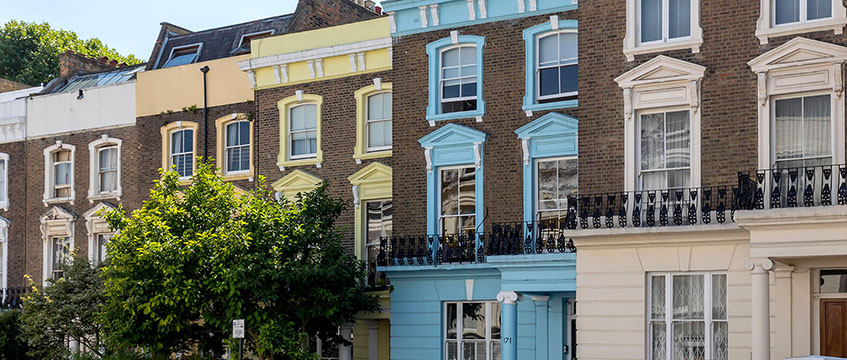Landlords to grow portfolios despite macro gloom
Nearly half of UK SME landlords plan to grow their portfolios in the next 12 months, new research has found – even as a turbulent macro climate looms over the industry.
However, not all regions are set to benefit equally. While London is likely to be the biggest beneficiary, the North East and Yorkshire are among the regions that will largely miss out on investment.
Among those looking to expand, 73% of respondents want to diversify their portfolio while 58% want to explore new geographies, according to the latest report from Swedish bank Handelsbanken.
Nearly half of UK SME landlords plan to grow their portfolios in the next 12 months, new research has found – even as a turbulent macro climate looms over the industry.
However, not all regions are set to benefit equally. While London is likely to be the biggest beneficiary, the North East and Yorkshire are among the regions that will largely miss out on investment.
Among those looking to expand, 73% of respondents want to diversify their portfolio while 58% want to explore new geographies, according to the latest report from Swedish bank Handelsbanken.
London was the biggest target for expansion, said the report, which collated views from 120 landlords of 829 UK properties. More than half (53%) of landlords plan to buy properties in the capital over the next year, since the capital commands monthly rental prices of more than £1,800. This is nearly twice the average for the rest of the UK, despite having 1.5% rental yield growth in the last year, compared with 2.8% outside the capital.
Rents in London are expected to rise by 3.5% in the next 12 months, whereas places beyond the capital are predicted to post 4.5% growth.
The other regions most likely to attract investment are the East of England, as cited by two-fifths of respondents – the East Midlands (22%) and Scotland (19%).
Only 6% were considering expansion to Yorkshire and the Humber, with a similar proportion looking at the North East. Some 8% said they were mooting a bigger presence in the West Midlands.
Resi and retail are the biggest draws
Residential properties – and houses in particular – were viewed as the most attractive sectors for investment over the next 12 months, with two-thirds of landlords listing houses as attractive, ahead of flats (38%) and houses in multiple occupation (34%).
On the commercial side, landlords saw the most opportunities in retail, with nearly half viewing the market “favourably”. This was followed by industrial (43%), offices (42%) and healthcare (32%).
Almost half (49%) of residential landlords and 46% of commercial landlords believed that demand for their property types will increase “significantly” over the next 12 months.
The research comes as the UK economy faces its highest inflation rates in 40 years, and highest interest rates for 13 years.
The report showed that landlords with eight or nine existing properties are most positive about further growth in the industry. Out of the landlords in that band, just over three-quarters said they were looking to invest in new properties in the coming year.
Struggles with sustainability
Elsewhere, just 1% of commercial landlords said they had a clear plan in place to make their portfolios more sustainable.
Only 39% were aware of government legislation requiring all commercially rented properties to have an EPC rating of at least E by April 2023.
Those landlords manage around 42% of all commercial properties in the sample, indicating there is still a lot of work that needs to be done for the UK’s stock to meet the new rules.
Just 9% of commercial landlords had an E EPC rating for every property in their portfolio.
Nearly a fifth of landlords said refitting their properties to meet environmental standards was too overwhelming, and that they are planning to sell all the properties in their portfolio that do not meet EPC targets – mainly because they cannot afford to make the changes.
The most common barrier preventing commercial landlords from making the required EPC upgrades is the regulation making it too difficult to do so (42%), while 14% claimed they could not access the right finance. Another 12% said they lacked the capex to invest in making their portfolios more sustainable.
To send feedback, e-mail akanksha.soni@eg.co.uk or tweet @EGPropertyNews
Image © Stefan Kiefer/imageBROKER/Shutterstock











